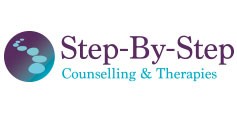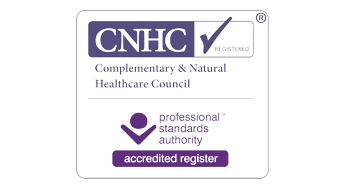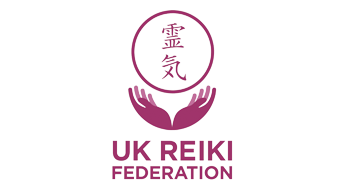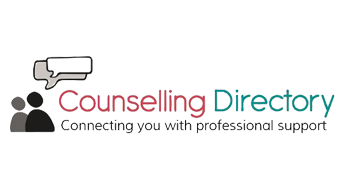Top tips to manage social media and your mental health
18th March 2024

Social media is part of our everyday life and how we experience it can directly impact our wellbeing and mental health.
Accessing social media platforms can be a real positive, it can help us stay connected with, family, friends, community, network with likeminded people and social groups, keep us up to date with news and gives us instant access to worldwide resources. With mindful management it can be a powerful addition to our lives.
However, it can negatively impact our moods, self-worth, confidence, self-perception and social expectations. Furthermore, it can increase feelings associated with isolation, loneliness, anxiety, depression, addiction, stress, eating disorders, inequality and FOMO (fear of missing out) etc. Such negative influence can lead to devastating consequences for some.
Everyone is responsible for their own health and emotional wellbeing, but we all need to be mindful of the impact of social media exposure and viewed content on ourselves and how what we share can impact others. So, let’s consider ways of finding balance and healthy management. Below are some tips and suggestions to consider, so that you can engage more mindfully and positively with social media:
- Your feed - take a good look at your social media feeds, the accounts you follow and apps you use. Do this with the view of ‘do I need this in my life, is it a positive influence?’
- Clear your feeds/apps - after reviewing what you use, delete apps that you no longer engage with, unfollow friends/family who aren’t a positive influence and block accounts/contacts that share negatively influential content
- Review your contacts - many of us have contacts in our phones of people we simply don’t know or wish to connect with anymore and social media friends that are no longer relevant. Take time once a month to review and delete where needed
- Delete your browsing history - often we get ‘spammed’ by online content similar to that we have already viewed, so delete your browser history regularly to limit this
- What role does your social media engagement serve - do you actively engage to find out something specific, or are you passively engaging, scrolling without purpose? Do you use it in a healthy way or is it a way of filling time or an avoidance of other issues, such as loneliness, social anxiety, low confidence, anxiety, grief, trauma or depression? Do you need help/support instead?
- Check in with yourself before you scroll - ask yourself ‘am I feeling positive or do I feel anxious, lonely, low etc’. If you’re feeling more negative, engage with positive people in person and limit your social media scrolling to positive, kind and uplifting topics or mindful apps to help improve your emotional state
- Set yourself a screen time limit - you can monitor your usage via apps or on most of the main social media sites and set time limits. Maybe limit Facebook, Instagram, Snapchat etc viewing to an hour a day or limit using one social media app per week and see if your emotional wellbeing improves as a result
- Disable social media notifications - the constant sounds of notifications can be a real interruption to our day and thoughts, adding to the pressure of phone engagement and the need to reply. Putting your phone on silent and limiting notifications can help you gain some peace - you can still check your phone to keep updated but without the constant reminder!
- Keep media access brief - short social sessions are healthier than hours of scrolling. Remember what you were looking for originally and don’t fall into the rabbit hole of scrolling one thing that leads to another
- Take regular breaks - take breaks in between using social media, engaging with others in person, a walk in nature, exercise etc. Take a break from scrolling at mealtimes, engage with others or your surroundings
- Sleep affects our mood - not enough sleep has a negative impact on our emotional state and physical wellbeing. Keep to a regular media switch off time, maybe limiting access an hour before bedtime and setting your phone to nighttime setting to eliminate the effects of blue light
- Be careful what you share - remember posting written or photographic content could be shared anywhere. If you don’t want the world to potentially know, don’t post it!
- Positive content - try to engage with positive content, apps, sites and platforms. Community platforms and those that care will be promoting positivity and not content that makes you feel isolated, different, scared or anxious. Avoid sites or communities that are promoting hate, violence, self-harm or impacting your self-worth in anyway
- Positive comments - think before you comment, is it kind, is it positive, is it something you would say in person? Think before you post!
- Positive apps and social media - downloading meditation apps, mindfulness apps, positive journal apps etc have a positive impact on our mental health
- Build a positive feed - engage in all things positive and healthy!
- Don’t believe all you see/hear - social media sites can often share controversial or disturbing content which can have a real negative influence on us, promoting feelings of fear, low self worth, body dysmorphia, anger, hate or violence. Not everything is true!
- Be aware of addiction - becoming addicted to social media is real, be mindful if it is taking over your life and make the changes needed before it gets too far. Don’t be a slave to your phone!
- Cyberbullying - be aware of online bullying and share your experiences with true friends or family. You may want to block/unfriend/stop following people or sites that are applying pressure or being unkind. In some cases, you may need to report this too
- For parents - parental control apps can help limit your child’s data usage or restrict phone use to certain times of the day. You can also adjust privacy settings on the different platforms to limit your child’s potential exposure to bullies or predators
- Social media comfort blanket - be aware of using your phone in social situations if you’re feeling uncomfortable or anxious. Instead try addressing your fears, engaging with others or using strategies to help manage your social anxiety and engage more in person
- Engage with likeminded people - find you herd!
- Keep it real - Build meaningful relationships in person, engage with people in real life! Whilst using social media can help us keep connected, there is nothing better than chatting with friends and family in person
- Take time in the real world - take time to reflect, maybe keep a daily journal of your thoughts and feelings, join groups, exercise, take walks in nature, practice mindfulness or meditation - all of this helps our earth connection and us feel connected to ourselves and each other
With mindful management, social media can be a real positive influence in our lives, but we need to remember to engage with ourselves, with others in person and our surroundings to keep a healthy connection.
“Don’t use social media to impress people; use it to impact people.”
_____
Dave Willis, Author & Speaker






